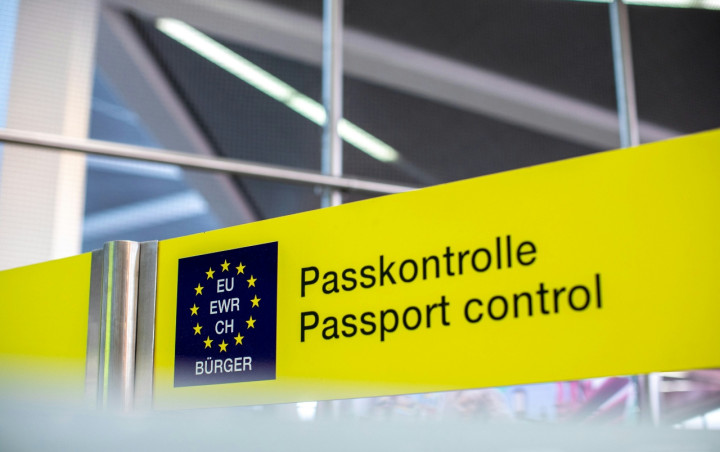Asylum and immigration
Controlling immigration and integration towards meeting our needs.

In 2023, Slovenia registered 60,000 illegal entries. 58,000 wanted to apply for protection, but only 7,200 did. 5,500 applications were receivable, 4,400 decisions were made with over 4,000 being Dublin decisions, requiring applicants to apply for asylum in the member state they previously passed or entered into the European Union. In total only 130 applicants actually received protection to stay in Slovenia in 2023.
If we look at net migration, in 2023, 33,000 citizens arrived (20% lower than the previous year), with the largest country being Bosnia and Herzegovina with 6,000, while 22,000 citizens left the country. Slovenia faces the same challenges as all EU member states with a birth rate of 1.55 far behind the required 2.1 per family to maintain a stable population and workforce. Worse - Slovenia is not attracting enough talent, ranking 62nd out of 67 countries in talent recruiting while our educated workforce is leaving for other EU member states because of a lack of job opportunities.
For Volt this situation poses two challenges:
1) How can we move to handling immigration on EU level - with a single system to avoid repeat applications, unnecessary bureaucracy and criticised rejections. Every member state should share a fair share of the burden and contribute to reducing illegal immigration by establishing legal immigration paths based on actual needs of our workforce.
2) The long-term sustainability of Slovenia’s economy and stability of social systems faced with a gradually declining population, emigration of educated workers and inability to attract high-skilled workers from abroad.
Volt Slovenia proposes:
Asylum
Ensure all illegal entrants are registered in the Eurodac database and the EU’s SIS and VIS systems to help track illegal movements. Slovenia can contribute to reducing the administrative burden across member states and in doing so, also disincentive illegal entry into the country for fear of being registered.
Refuse any asylum requests if a procedure is pending in another member state and simplify Dublin decisions to being immediate to relieve our administration and hosting capacities from unnecessary burdens. Make decisions available to other EU member states to avoid re-evaluating the same dossier in multiple countries.
Push for a revision of the Dublin agreement that puts the EU in charge of central processing of all arrivals with member states contributing financial means and accommodation based on their size and capacities. Seek other member states to support such an initiative and contribute the potential Slovenian share in such a system.
Demand a harmonized definition on EU level of safe countries to ensure asylum requests are based on the same presumptions across Europe.
Immigration and integration
Create legal immigration paths from outside of Europe into Slovenia by implementing a working visa sponsorship programme similar to the US that allows companies in sectors that lack qualified workforce to sponsor work visas based on the EU Blue card system. Limit the scope to secondary or tertiary education and ensure gender balance of arrivals.
Speed up the asylum process if an applicant finds regular employment and filing for a working visa.
Use the trend to work remotely to attract high-salary mobile EU citizens to permanently move to Slovenia and become Slovenian tax residents. Simplify the recognition of posted workers, possibilities of integration and democratic participation.
Avoid gated communities and ghettos by introducing minimum and maximum caps for social housing, actively managing settlement of non-EU arrivals and ensuring a sustainable mix of the housing stock across the country.
Expand resources available for integration - language classes, settlement support, cultural courses - for everyone settling in Slovenia. For non-EU arrivals, long-term residence-permits and further possibilities such as family reunification should be conditioned on demonstrating language proficiency, financial self-sufficiency and integration into Slovenian society.
In case of family reunifications, use elements of the Danish “24 years policy”, provide general education for partners coming to Slovenia and likewise condition long-term residence permits and access to citizenship on language proficiency and financial self-sufficiency.
Border protection
Push for the European Union and Frontex to become solely responsible for the (small) international Slovenian border to introduce the idea of moving to a system where the EU is in charge of external borders and processing of all arrivals. Suggest Croatia and other member states to follow suit.
(version 07-2025)